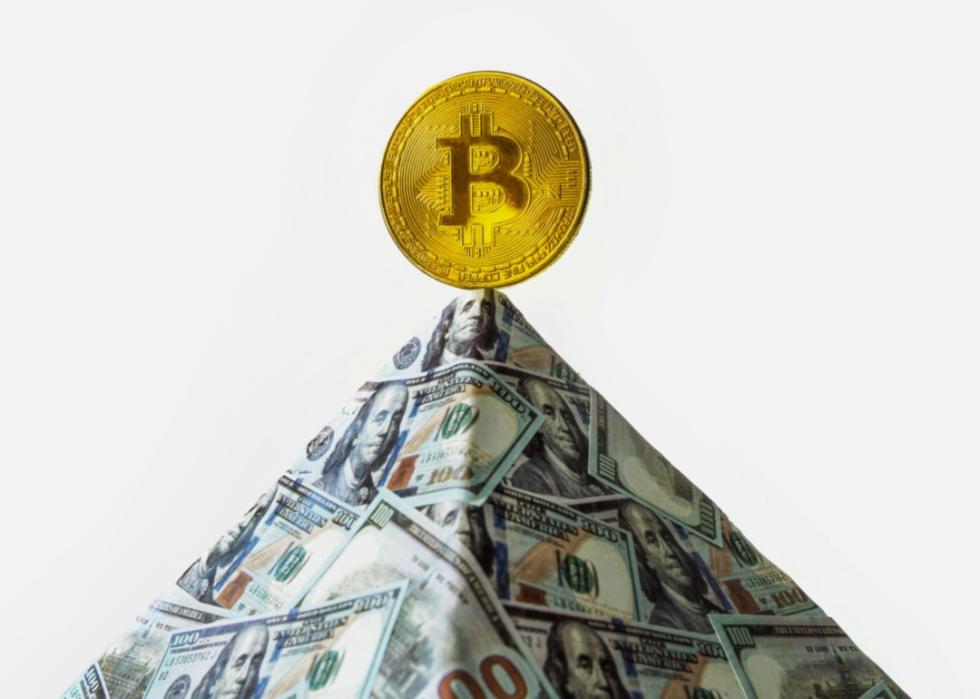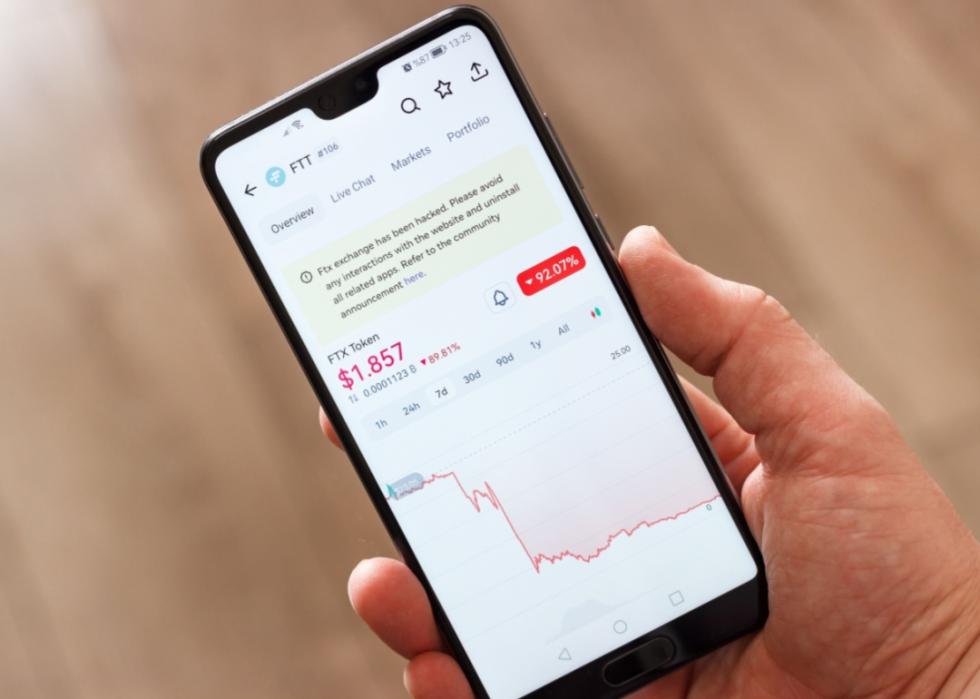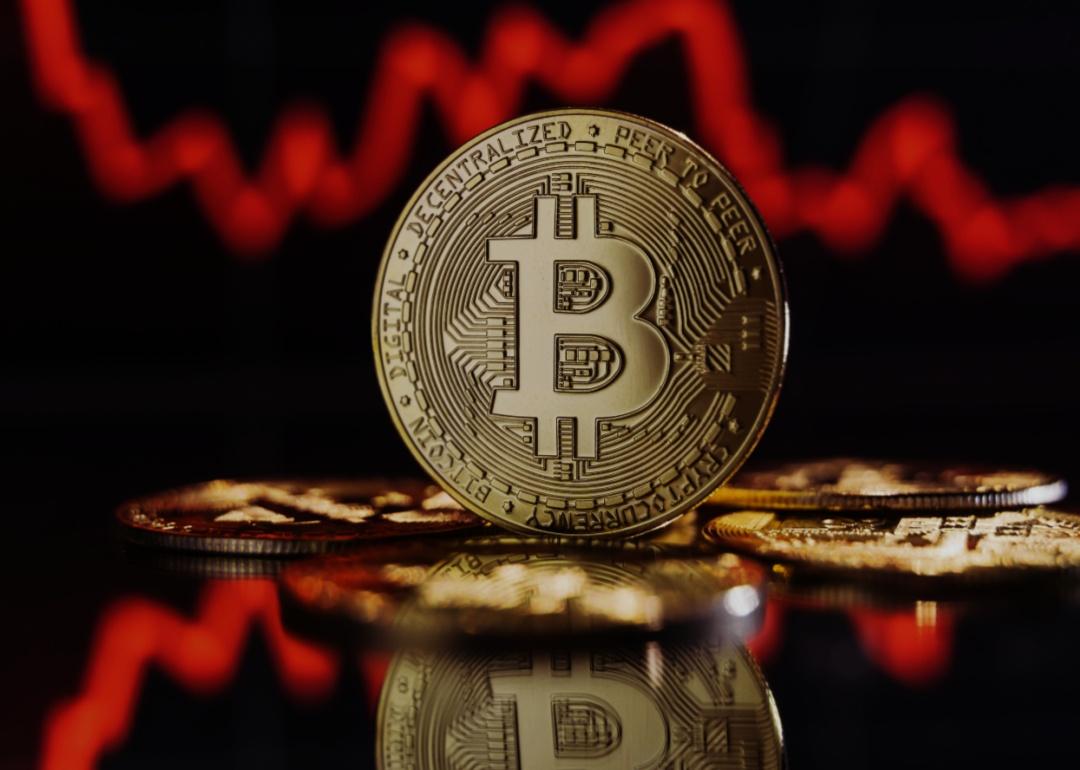Top 10 crypto disasters explained, and how to protect yourself

-Total estimated losses: $1 billion
After AWS Mining PTY Ltd., the first pyramid scheme Cynthia and Eddy Petion were involved with, came apart in 2019, the pair exploited religious faith to scam Haitian immigrants, holding revival-style seminars in Creole. "Reverend CEO" Cynthia promised instant profits from investing in their NovaTech scheme while secretly siphoning $40 million into her family's accounts. The fraudsters also used funds from NovaTech to investors from their first scheme to help sustain the conspiracy.
When their second pyramid scheme began unraveling in 2022, thousands of immigrant families lost their savings, with the SEC's charges of defrauding some 200,000 investors providing only some consolation to those who believed in the Petions' false gospel of wealth.

-Total estimated losses: $1.3 billion
HyperVerse scammed retirees from June 2020 through the beginning of 2022 by inventing a fake metaverse project with a fictional executive team and impossible investment promises. Self-proclaimed "Australian crypto crown prince" Xue "Sam" Lee and Brenda Chunga, known as the Bitcoin Beautee, spread what the SEC later called a "fraudulent crypto asset pyramid scheme" through network marketing groups.
They targeted older adults who invested and subsequently lost their life savings to a virtual world that never existed, leaving some surviving on basic pensions and facing mental health crises.

-Total estimated losses: $1.3 billion in liabilities
BlockFi's 2022 flameout came just months after it agreed to pay $100 million in fines to the SEC and other state regulators for pushing too-good-to-be-true yields and failing to register as an investment business from 2019 through 2021. The final blow came from a $400 million lifeline from FTX that dragged BlockFi into crypto's biggest meltdown. At its height before declaring bankruptcy, BlockFi claimed to have managed $15 billion in assets.

-Total estimated losses: $1.7 billion shortfall
Celsius Network promised 18% yields and an "unbank yourself" revolution that drew 1.7 million customers, including teachers and retirees, who entrusted their life savings to the failed lending platform. CEO Alex Mashinsky, whose crimes spanned 2018 to 2022, kept hustling for deposits even as the company bled money on risky decentralized finance (or "DeFi") bets and now faces fraud charges while victims fight for scraps in bankruptcy court.

-Total estimated losses: $2 billion
After launching Turkey's first bitcoin ATMs and bragging he was "smart enough to lead any institution on Earth," Thodex CEO Faruk Fatih Özer vanished in April 2021. It turns out he fled to Albania with $2 billion from 400,000 Thodex customers who were mostly young Turkish investors lured by extravagant giveaways like Porsches and PlayStations.
Justice caught up with Özer and his two siblings in 2023. They were each charged with money laundering, fraud, and organized crime and slapped with an over 11,196-year prison sentence and an approximately $5 million judicial fine.

-Total estimated losses: $3.3 billion
Three Arrows Capital founders' gambles on bitcoin and luna imploded, taking down dozens of other firms that had trusted the Singapore-based hedge fund. The collapse sent shockwaves through the industry and helped trigger 2022's crypto downturn.
Officials apprehended co-founder Su Zhu at a Singapore airport in September 2023. He served four months in prison for failing to cooperate in the company's liquidation investigations and for contempt of court. While co-founder Kyle Davies faced the same charges and sentence, he has avoided jail time by evading officials.

-Total estimated losses: $3.6 billion
South African brothers Ameer and Raees Cajee, aged 16 and 19 when they formed the firm in 2019, pulled off a massive crypto heist, vanishing in 2021 with billions after claiming someone hacked their exchange. According to investigators, the wunderkinds suckered wealthy investors, including pro athletes, with promises of algorithmic trading magic, then laundered the loot through a complicated series of dark web "mixers" that redirected the funds without a trace.
Because the country doesn't consider cryptocurrency financial products, the Finance Sector Conduct Authority of South Africa couldn't formally investigate the Cajee brothers' scheme. The brothers resurfaced in Switzerland in April 2023, arousing suspicion of Swiss officials, who opened an investigation over suspected money laundering.

-Total estimated losses: $5.1 billion in liabilities
Genesis froze billions in customer funds after getting caught in the FTX collapse. The company was lending up to $6.5 billion to crypto trading firm Alameda Research, co-founded by Sam Bankman-Fried, with loans that were only 50% secured and using FTX's token, whose value fell to zero, as collateral.
A cryptocurrency intermediary, Genesis marketed itself primarily to institutional investors. In January 2023, the company filed for bankruptcy and began settling with customers and creditors.

-Total estimated losses: $8.7 billion
FTX founder Sam Bankman-Fried secretly siphoned billions in customer money to his trading firm Alameda Research while plastering his brand across stadiums and courting celebrities and other powerful figures. Behind his carefully crafted image as a disheveled genius devoted to "effective altruism," he ran a massive fraud, buying luxury real estate and becoming Washington's second-largest Democratic donor, according to OpenSecrets, before it all came crashing down in November 2022, earning him 25 years in prison.

-Total estimated losses: $40 billion
Terra-LUNA's May 2022 collapse revealed the fatal flaw in stablecoins when Terra co-founder Do Kwon's system of destroying and creating tokens to maintain a dollar peg failed. Terra, the third largest cryptocurrency following Bitcoin and Ethereum as of April 2023, was among the first major crypto collapses.
While more sophisticated investors escaped early, everyday investors trusted Kwon's promises until their money evaporated. Kwon fled with fake Costa Rican papers but was caught in Montenegro and extradited to the U.S. to face nine federal fraud charges.

The SEC advises due diligence on all crypto projects. Verify founder identities, scrutinize business models, and be wary of unsustainable returns. Minimize exposure to exchange meltdowns by storing tokens in a hardware wallet and only investing what you can afford to lose entirely.
Consider evaluating whether an exchange maintains proof of reserves, where an auditor evaluates whether it can cover customer funds in the event of a loss. If promised returns look too good to be true, proceed with caution.
Data reporting by Dom DiFurio. Story editing by Alizah Salario. Additional editing by Elisa Huang. Copy editing by Kristen Wegrzyn. Photo selection by Ania Antecka.
